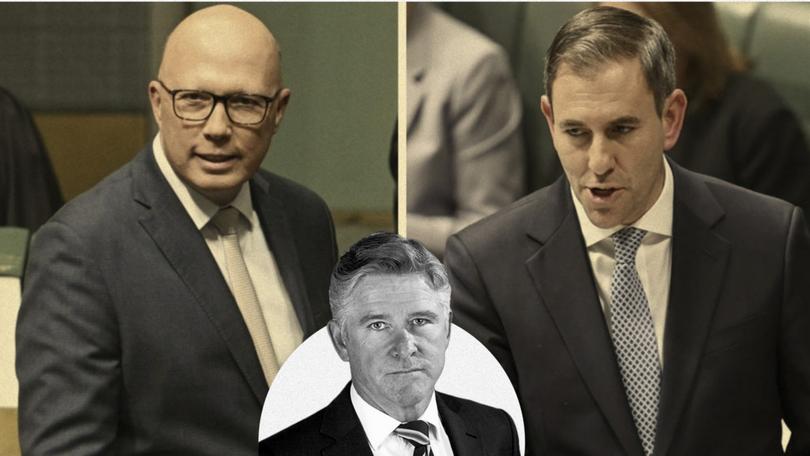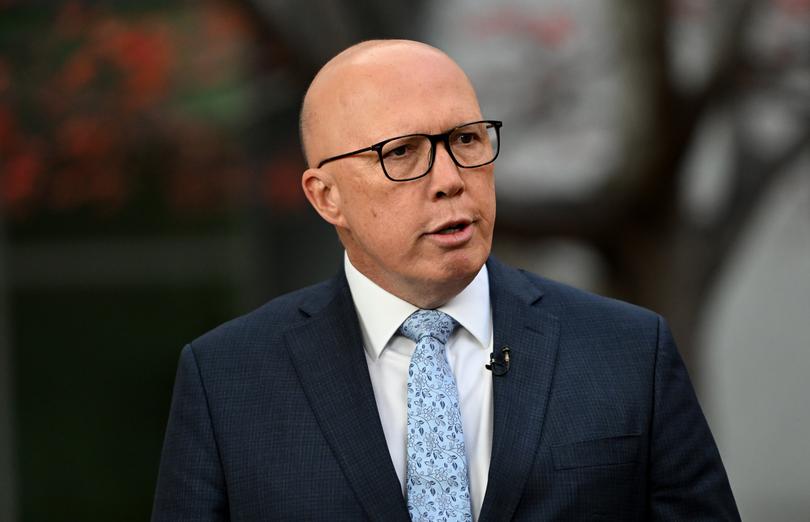MARK RILEY: It’s easy to blame all our frustrations on migration. It’s also wrong
MARK RILEY: In a strange way, both the Government and the Opposition are staking their claims at the next election on Futures Made in Australia.

In a strange way, both the Government and the Opposition are staking their claims at the next election on futures made in Australia.
But they are doing it in very different ways.
For Labor, it is an official objective.
Sign up to The Nightly's newsletters.
Get the first look at the digital newspaper, curated daily stories and breaking headlines delivered to your inbox.
By continuing you agree to our Terms and Privacy Policy.The Future Made in Australia plan is now its central vision.
It is one based on billions of dollars in mostly tax incentives to encourage private investors to sink their capital into developing sovereign capabilities in “the industries of the future”.
It is a perfectly logical plan in theory.
In practice, though, it is one that raises big questions.
How does Australia compete in these high-tech industries when it is starting at ground zero in a higher cost, higher wages and higher taxation environment facing long-established competitors who have the benefit of bigger government subsidies, lower wages, less regulation and larger economies of scale?
The answer? With great difficulty.
The best way to overcome that difficulty is to better exploit our natural advantages.
And there are many.
Australia has a long and successful history of digging up stuff and selling it overseas.
It is what has kept our economy humming for the past 50 years or more.
And doing that will continue to help underpin our economic success for decades to come.
Developing countries will still need vast quantities of our traditional resources to power, build and transport their own economies’ growth towards stable and sustainable prosperity.
But the tens of billions of export dollars that flow from that trade will decline over coming decades as the international economy shifts towards a carbon-neutral base that relies more heavily on low- and no-emission resources.
That is where Labor sees its Future Made in Australia.
It is a future in which we don’t just rip and ship everything, but one in which we better exploit our rich deposits of rare earth and critical minerals by using them here to manufacture the solar panels, hydrogen energy, green steel and iron, batteries and quantum computers that are already becoming the essential components of the emerging global economy.
For the Coalition, the future made in Australia has a different complexion.
It is one based on people.
Peter Dutton’s Budget alternative centres on restricting migration to grow domestic opportunity, particularly in the housing market.
It relies on another kind of market manipulation.
Labor’s plan is supply-based. It aims to increase the supply of domestically made goods to service the industries of the future.

The Coalition’s plan is demand-based.
It aims to reduce demand in the housing market and increase aspirational Australians’ chances of owning a home by limiting the number of migrants competing for properties.
Business isn’t happy because it will also limit the number of skilled workers coming in to fill crucial labour gaps and fewer migrants to work in the aged and childcare sectors.
It is a simpler plan than Labor’s.
It is also one that makes an unblushing appeal to base politics.
And in both ways, that is its power.
People understand it and largely agree with it because it plays to their existing prejudices.
It is easy and convenient to blame all the great frustrations of modern life on migration — crowded trains, trouble seeing a doctor, traffic jams, higher rents and so on.
It is also wrong.
But strategists say that trying to convince the electorate of that is loaded with danger.
Those preconceptions are deep-seated and passionately held.
People get angry about many things.
Not all of them will make them change their votes.
Migration and border protection do.
That is why they have figured so prominently as central issues in our election campaigns since 2001.
All this makes the challenge for Labor even greater.
Its plan is complex, and expensive and will necessitate a fundamental shift away from the type of labour force Australians have become familiar with to one that necessitates significant change to their lives but with the potential of enormous benefits.
The Coalition plan doesn’t suffer from complexity.
Dutton’s new line is: “Not a bigger Australia, but a better Australia”.
The Greens’ Sarah Hanson-Young condemns his promise to slash permanent migration as “racist”.
But it has been largely embraced on the streets of the most multicultural suburbs of our cities.
That means it could also be politically effective.
And that obviously worries Labor.
We know that because the Government has been eager to point out that it, too, has a plan to cut migration while at the same time criticising Dutton’s plan.
And, so, we now have two competing plans for a future made in Australia.
The Coalition’s version, though, offers less of a future for those people who are not themselves made in Australia.

